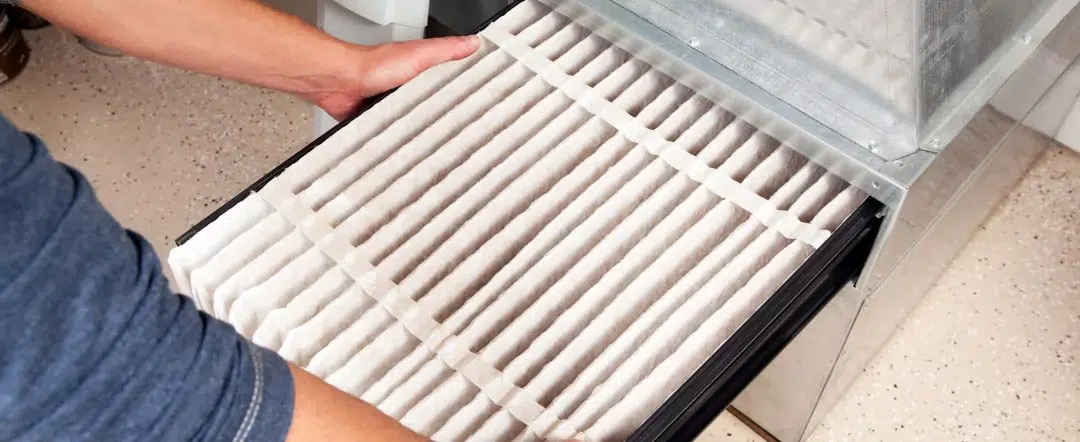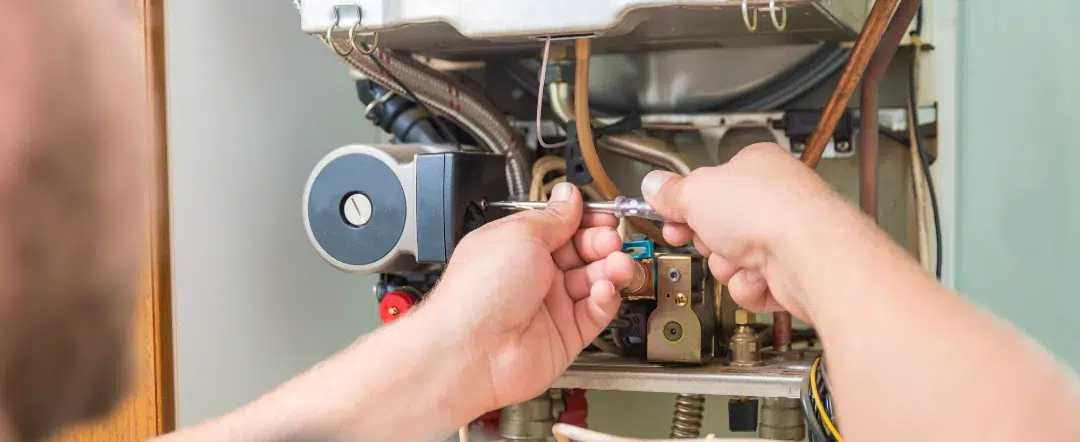What Size Furnace Do I Need (in North Carolina)?

All good things must come to an end…
And that includes furnace efficiency. If you’re reading this, you’ve likely already come to terms with needing a new furnace. But just in case you’re still in a little bit of denial, here are some telltale signs that your furnace is on the way out:
- Everyone in your house is wrapped in various blankets despite the high thermostat setting
- Your heating bill has gone way up or is unpredictable month-to-month
- Your furnace is more than ten years old
- You’ve shelled out hundreds on furnace maintenance over the last two years
- The air in your home is stuffy and stale
- Your current furnace makes more noise than the garbage collectors at dawn
Figuring out the right size furnace for you is the first step to new furnace installation.
And if your first question after reading that is “But what size of furnace do I need for my house?” you’re not alone. The Air Experts get asked this constantly, so we’ve broken down the key factors for choosing a furnace size here:
Key Factor 1: Your Home’s Square Footage
Furnaces are made in different sizes to provide the amount of heat most appropriate to the space they serve. Common models usually come in sizes from 40,000 British Thermal Units (BTUs) to around 120,000 BTUs, with sizing increments going up by 10 or 20,000. That’s a lot of variance, which means a lot of room for error. To figure out what furnace will serve you best, you’ll first need to know your home’s square footage.
Key Factor 2: Your Climate Zone
Simply put, climate zones are areas with distinct climates based on average temperature and precipitation. As you might imagine, furnaces must work harder in colder climates, which is why climate zone is an important factor when choosing the optimal furnace size. The U.S. is broken up into five climate zones. North Carolina, the Air Experts base of operations, falls within Zone 2. Most homes within Zone 2 will need a furnace unit capable of 35-40 BTUs of output per square foot.
Free, Easy-to-Use Tool – The Furnace Size Calculator
Once you’ve figured out your home’s square footage, head on over to this free furnace size calculator (which also features a handy climate zone map). This will give you a great place to start.
For example… if we assume House A is 1,500 square feet and is located in North Carolina, Zone 2 – the calculator tells us that Home A needs a furnace with at least 60,000 BTUs in capacity. There are other factors the owner of Home A may want to talk over with an HVAC professional to get to a final number. Things like insulation, energy efficiency, and furnace type all come into play. But this is a solid number to start with as Homeowner A begins pricing.
And speaking of pricing…
National data shows that the average replacement cost of a furnace in 2020 ranged from $1,795 to $6,290, with most homeowners falling somewhere in the middle. This is a tough number to nail down however as where you live, the size furnace you need, the type of furnace you’re looking for, and your home’s energy efficiency all factor into the math.
The Air Experts can help you find the right furnace for a low price – guaranteed!
Our team has been delivering the best in heating services in the Raleigh, Durham, and Chapel Hill areas since 1986. We believe so strongly in our expertise that we offer a low-price guarantee. If you find a lower price on the same system with the same guarantees and warranties, we will match this price or pay you $100.
If you found this post helpful, check out our other blog posts, subscribe to our YouTube channel , and follow us on social media for more HVAC and plumbing tips, information, and fun!
Air Experts is always here for your Heating, Cooling, Indoor Air Quality, Plumbing, and Water Treatment needs. Our award-winning customer service team is available 24/7, or you can easily book an appointment online.







